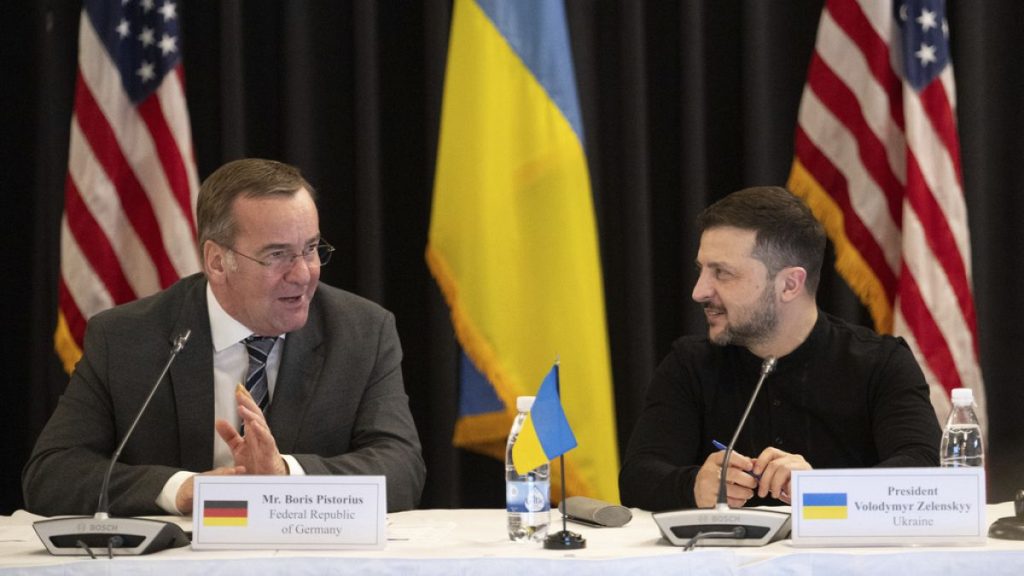Germany Reaffirms Support for Ukraine Amidst US Political Transition
German Defence Minister Boris Pistorius, during the Ukraine Defence Contact Group meeting in Ramstein, underscored Germany’s unwavering commitment to supporting Ukraine, irrespective of the outcome of the German federal elections scheduled for February. This commitment signifies Germany’s recognition of the critical need to bolster Ukraine’s defensive capabilities against ongoing external threats. Pistorius emphasized that Germany’s support transcends political cycles and reflects a deep-seated dedication to Ukraine’s security and sovereignty. This commitment serves as a powerful signal of solidarity to Ukraine and sends a clear message of deterrence against further aggression.
As part of this ongoing support, Germany pledged to deploy two Patriot missile units and 200 soldiers to Poland in the coming weeks. This deployment, part of a broader NATO mission, aims to strengthen the defence posture in the region and protect a crucial logistics hub supporting Ukraine. This move underscores Germany’s commitment to collective defence within the NATO framework and its proactive role in safeguarding the security of its allies. The deployment also highlights the strategic importance of Poland as a logistical hub for supplying Ukraine with vital military aid.
While Pistorius refrained from announcing a large-scale aid package at the Ramstein meeting, he committed to delivering three additional IRIS-T SLM and SLS air defence systems, alongside thirteen Gepard tanks, to bolster Ukraine’s air defence capabilities. Furthermore, he pledged to provide additional missiles for the IRIS-T systems in the near future, diverting them from the German Bundeswehr’s own allocation. This decision underscores the urgency of supplying Ukraine with essential defensive weaponry to counter aerial threats. The transfer of these advanced air defence systems represents a significant contribution to Ukraine’s ability to protect its critical infrastructure and population from air attacks.
The impending Trump presidency in the United States emerged as a key discussion point during the meeting. Pistorius stressed the vital need for the Ukraine Contact Group meetings to continue under Trump’s administration, recognizing the importance of maintaining international coordination and support for Ukraine. However, the future of these meetings remains uncertain, given the changing political landscape in the US. Should the new administration opt to discontinue the current format, Pistorius emphasized the necessity of finding alternative avenues to preserve the collaborative effort. This underscores the collective determination to maintain support for Ukraine irrespective of potential shifts in US policy.
Ukrainian President Volodymyr Zelenskyy, acknowledging the upcoming US leadership transition, urged for intensified cooperation between Ukraine and its international partners. Speaking at the meeting, Zelenskyy highlighted the importance of collective action and enhanced coordination to achieve tangible progress. He stressed the need to leverage the period following Trump’s inauguration on January 20th to strengthen the collaborative framework and achieve greater effectiveness as a unified team. This appeal underscores Ukraine’s recognition of the crucial role of international support in its ongoing struggle.
Zelenskyy, in a recent podcast interview, characterized Trump as a pivotal figure in the effort to stop Russian President Vladimir Putin. This perspective raises intriguing questions about the potential dynamics of the relationship between the incoming US administration and Russia, and its implications for Ukraine. Meanwhile, Tymofiy Mylovanov, former Ukrainian Minister of Economic Development, expressed optimism regarding the Trump administration’s commitment to securing a peace deal without compromising Ukraine’s sovereignty. He predicted the continuation of aid to Ukraine as a means of maintaining leverage over Putin and ensuring the enforcement of any potential peace agreement. Mylovanov also emphasized the need for increased engagement from the EU and Germany, particularly in light of Trump’s previous pronouncements suggesting that Ukraine falls under the EU’s purview, with Germany holding a key leadership role within the EU. This highlights the potential for a shift in the distribution of responsibilities among international actors supporting Ukraine, and the importance of Germany’s role in navigating this transition.














